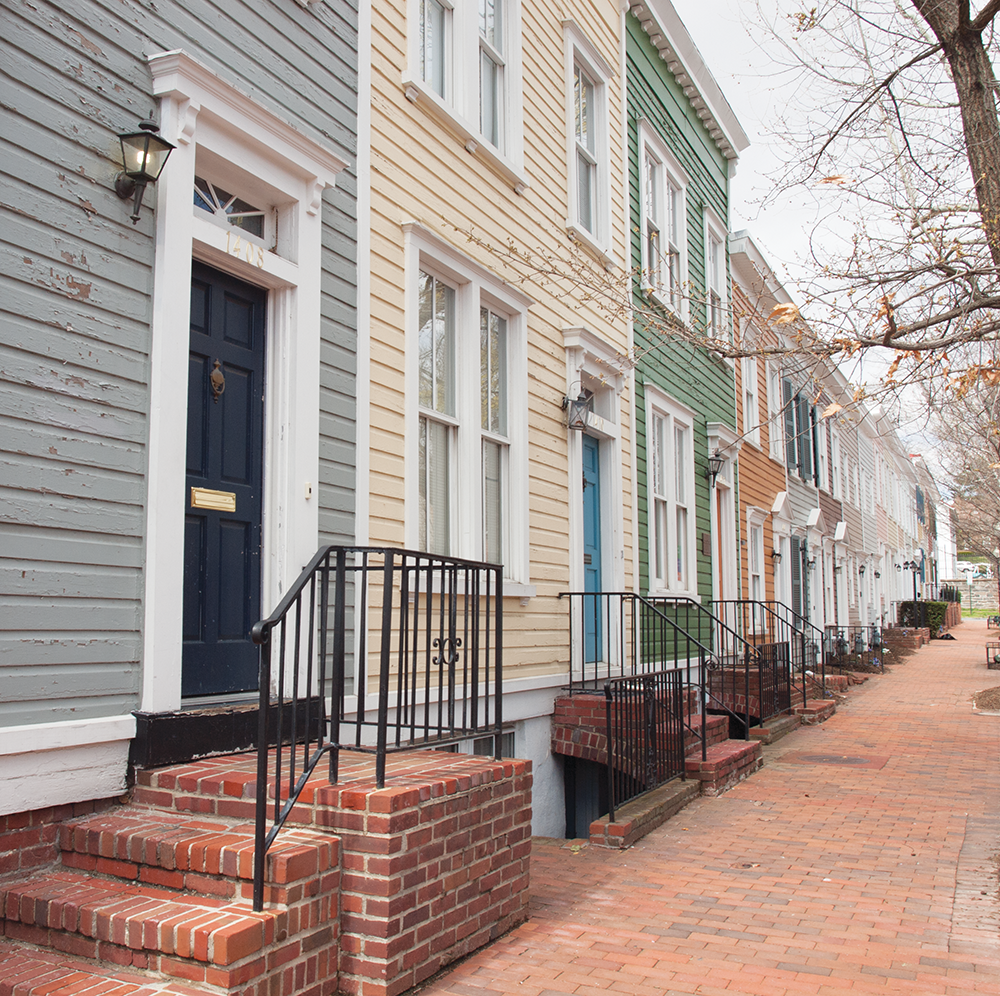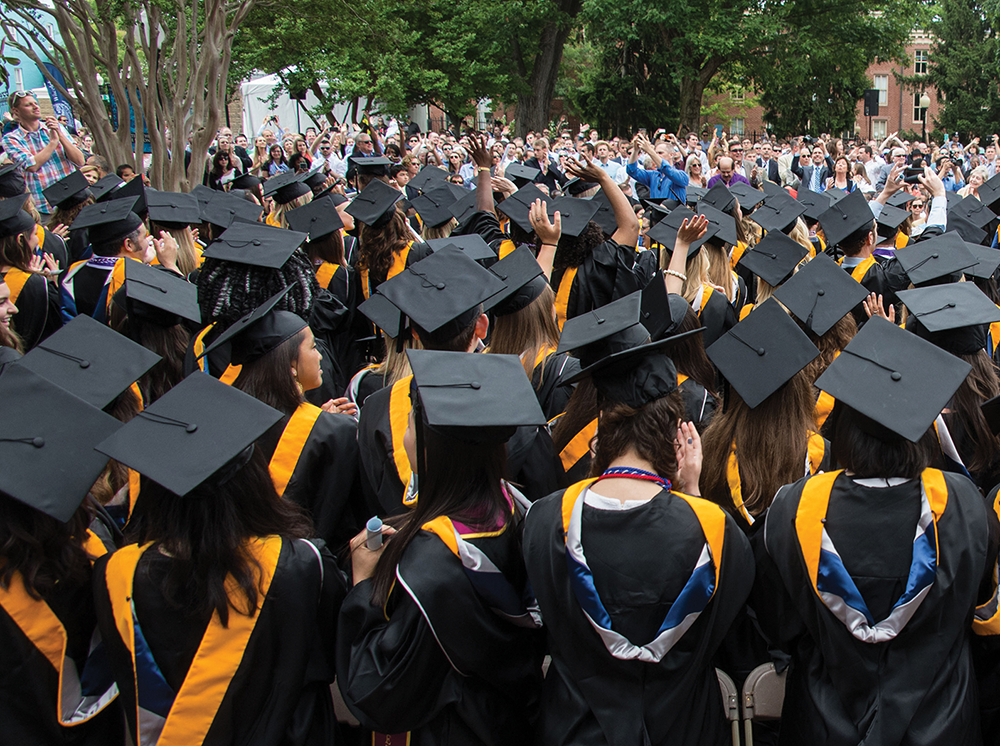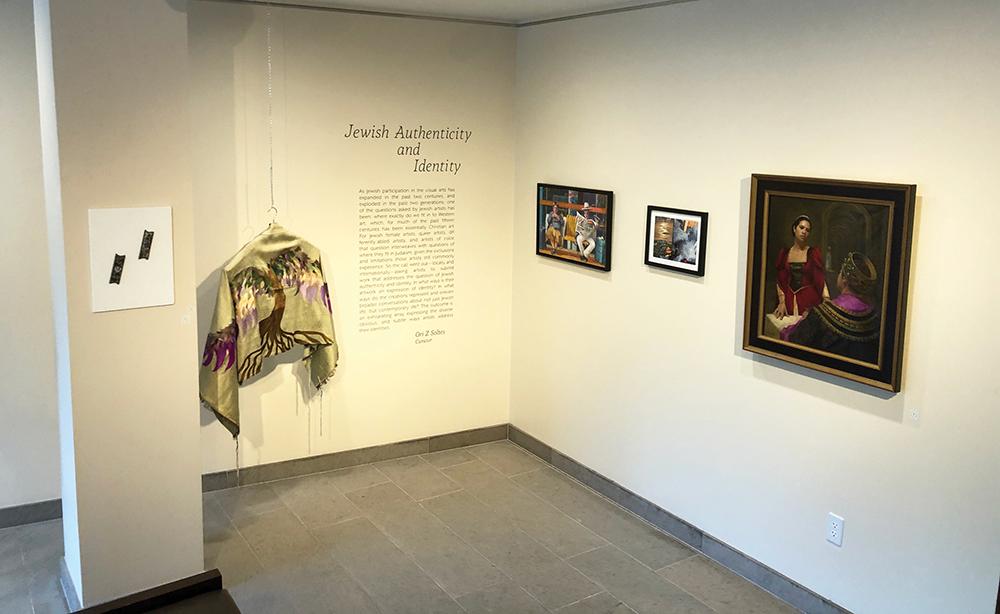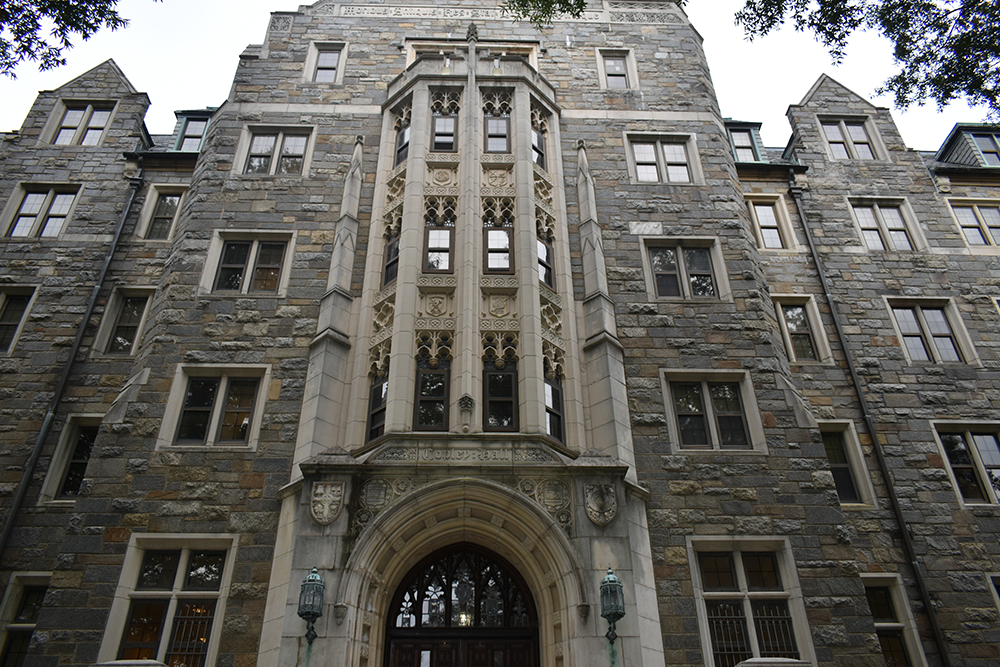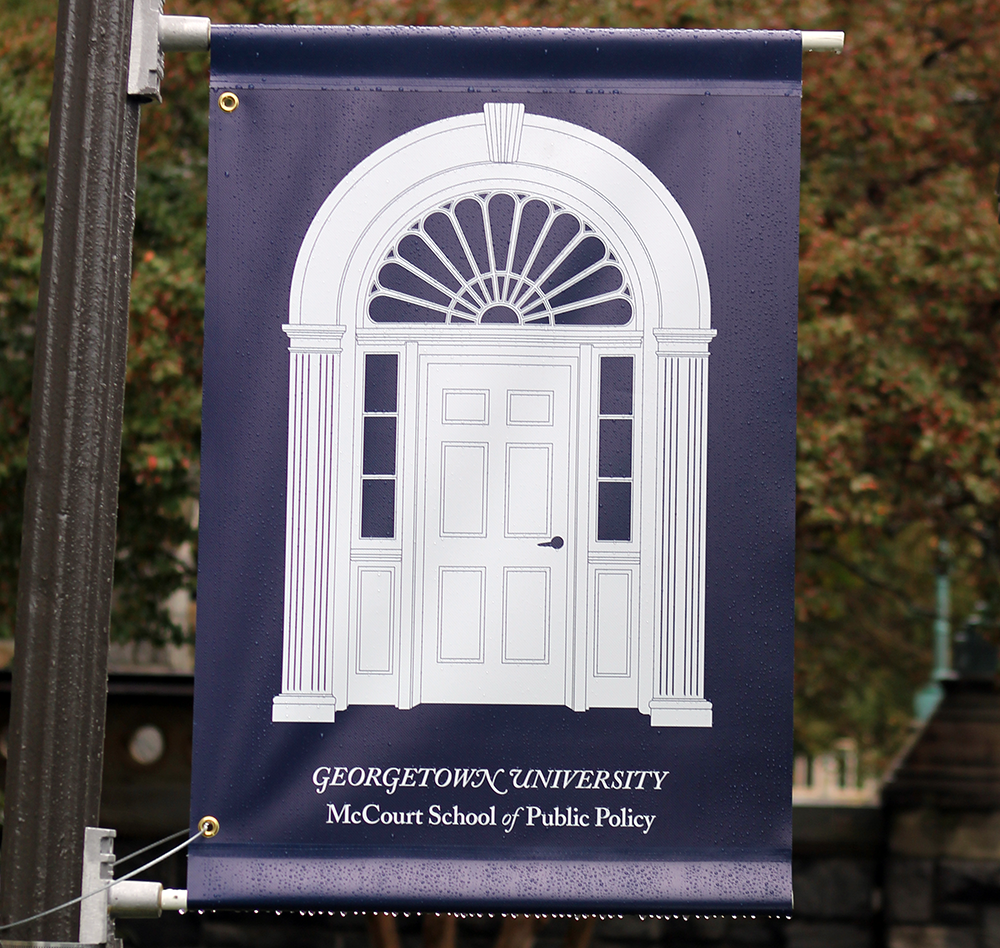The Georgetown University Student Association Senate passed a resolution reaffirming support for increased financial aid transparency from the Georgetown University’s administration in an ongoing effort to address student financial aid concerns.
The legislation, passed unanimously at GUSA’s meeting Aug. 16, urges the university to release the financial aid formula used to calculate financial need for the 2020-21 school year. It also calls on the Office of Student Financial Services to create a student working group on financial aid by October. The students in the working group would consult with university officials on financial aid and related policies.
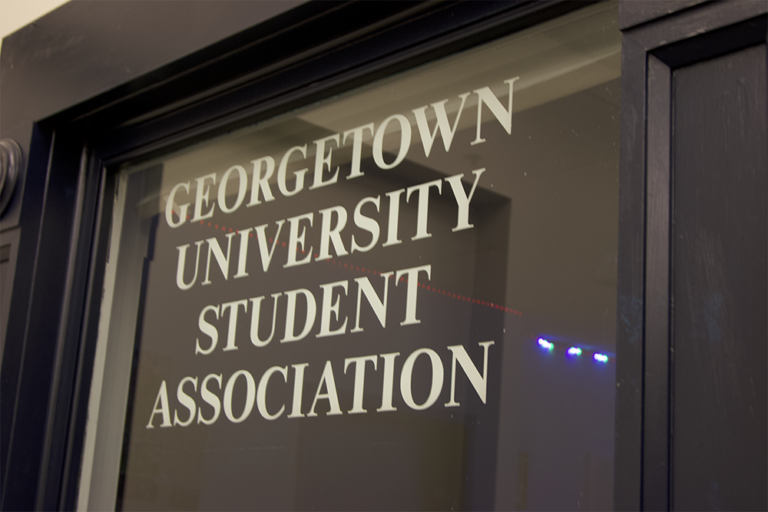
Students expressed outrage earlier this month in response to dramatic financial aid reductions announced by the university July 31. The university has acted indifferently toward its most vulnerable students, according to GUSA Senator Leo Teixeira (COL ’21), who co-sponsored the resolution.
“What we’re seeing now is not a potential little oversight on the behalf of the administration,” Teixiera said during the meeting. “This is a pretty universal disregard for their well-being and their ability to complete their studies.”
The university plans to convene a “Student Financial Aid Advisory Group” in the fall to discuss student financial aid concerns, according to a university spokesperson.
“We are reviewing the GUSA resolution and the ideas that they have put forward,” a university spokesperson wrote in an email to The Hoya. “Our commitment to financial aid remains strong.”
The resolution also aims to increase work-study offerings for students who are in different time zones. The university must adjust work-study offerings to compensate for virtual learning, according to GUSA Senator Rowlie John Flores (COL ’22), who introduced the legislation.
“Without accommodations for work-study, students are having to choose between time zone differences for their classes or for their work, and that’s not fair for a lot of students,” Flores said at the meeting.
The resolution calls on the Student Employment Office to ensure work-study positions are available on evenings, weekends or asynchronously so students in different time zones are able to obtain financial support. The university stated it would create more virtual work-study opportunities for students during the fall semester.
While the senate previously passed a June 28 resolution calling for more flexibility in the hours and type of work-study programs available to students, the university has not provided any information about expanded options to the GUSA Senate, according to the Aug. 16 legislation.
The resolution also asks the university to increase other forms of aid to assist undocumented students who are not eligible or able to participate in work-study.
According to GUSA Senator Sofia Negrete-Retamales (SFS ’23), who co-sponsored the resolution, students uncomfortable with sharing their undocumented status will often take it upon themselves to pay the difference of not being able to work.
“I know not every undocumented student is comfortable sharing their status with their financial aid officer to say, ‘Hey, this is the reason I can’t do student employment.’ And for that reason, they might just take it upon themselves to pay for that amount,” Negrete-Retamales said.
The senate also passed a resolution that advocates restrained spending among student groups for the upcoming semester because of the financial challenges of the COVID-19 pandemic.
According to GUSA Finance and Appropriations Committee Chair Eric Bazail-Eimil (SFS ’23), who introduced the resolution, the Senate hopes to define regulations for student activities fee spending this fall. FinApp, the senate committee responsible for allocating money collected through the student activities fee to clubs, formulated a budget at its annual summit last spring.
“The point of this bill is to write down a series of expectations about spending guidelines and revision processes to hold the next senate accountable to those processes,” Bazail-Eimil said during the meeting.
The senate will honor the proportions of allocations across advisory boards from the Fiscal Year 2021 Budget Summit until the next senate election, according to Bazail-Eimil.
After the university’s add/drop period ends, FinApp plans to meet with GUSA advisory boards, the Georgetown Program Board, the Georgetown University Lecture Fund and the GUSA Executive to revisit the budget totals and decide whether to redistribute funds.
A small cut of every student’s tuition — the student activities fee — is pooled and allocated by GUSA to different student organizations. Because the university has not yet provided information to GUSA about how many students will be enrolled in the university for the fall semester, according to Bazail-Eimil, GUSA is unsure how much money it will have to allocate to clubs in the coming semesters.
“Once [the add/drop] period is over, we’re going to know the exact number and we’re going to know the amount of money that was raised for the student activity fund,” Bazail-Eimil said. “The goal at that point would be between the add/drop and the election to bring everyone together to review the totals and come up with a finalized actual fall spending plan.”
The resolution also recommends GUSA implement a general spending freeze through Jan. 3 that would prevent the association from spending funds on events that would violate the university’s social-distancing and public health guidelines.
GUSA officials emailed surveys to student clubs, asking club leaders about anticipated expenditures and plans for the fall, according to emails obtained by The Hoya.
According to the email, the fiscal year 2021 student activities fee totaled approximately $1.072 million dollars. A GUSA email to club leaders asked them to voice an opinion on how much students should contribute to the SAF for the fall semester, with options ranging from 30% to 100% of the 2021 SAF.
Additionally, after the introduction of several amendments, the senate voted unanimously to overhaul the GUSA Governing By-laws for the first time in 13 years.
The changes to the organization’s internal doctrine were authored by former GUSA Ethics and Oversight Committee Chair Zach Volpe (SFS ’23), who said the reforms aim to increase accountability and transparency as well as strengthen discipline within the senate.
The new bylaws enable the senate to remove an appointed senator by a two-thirds vote without conducting formal impeachment proceedings.
The bylaw revisions also stipulate that the senate must record and organize meetings to enhance public access, a change the senate hopes will increase student engagement with GUSA.
The revisions are also aimed at increasing GUSA’s visibility, according to Volpe.
“It’s a really important part of our work to be transparent and accessible to the public, and I think that this provision really enables those two things,” Volpe said during the meeting.








